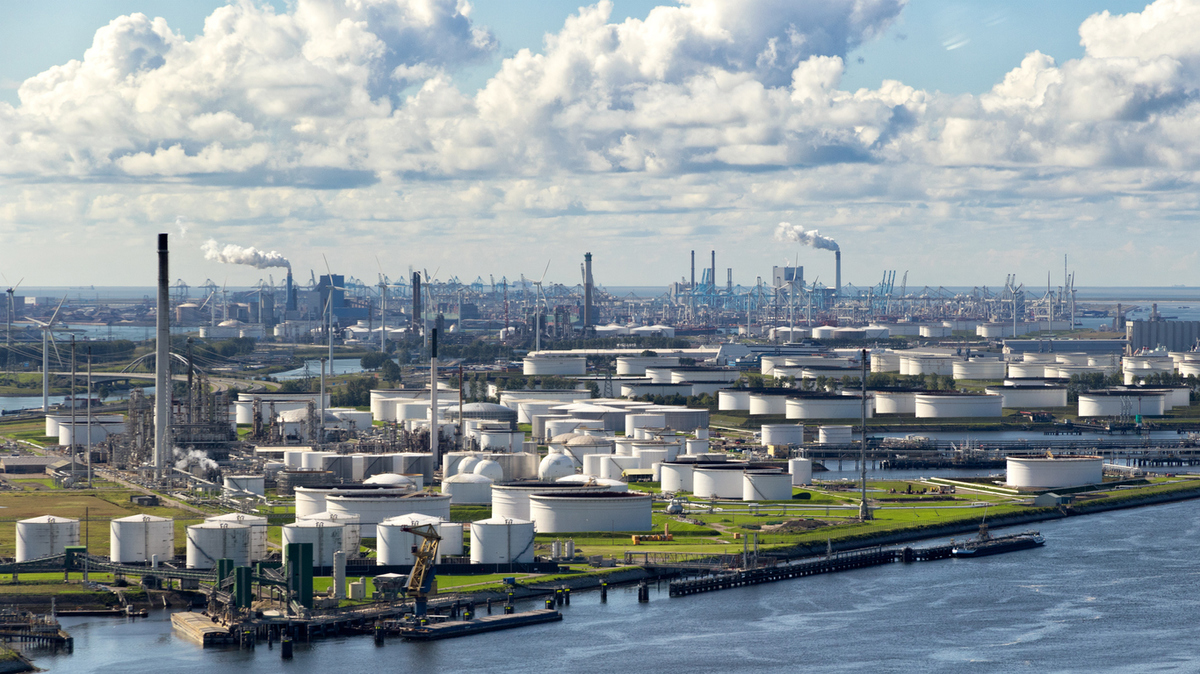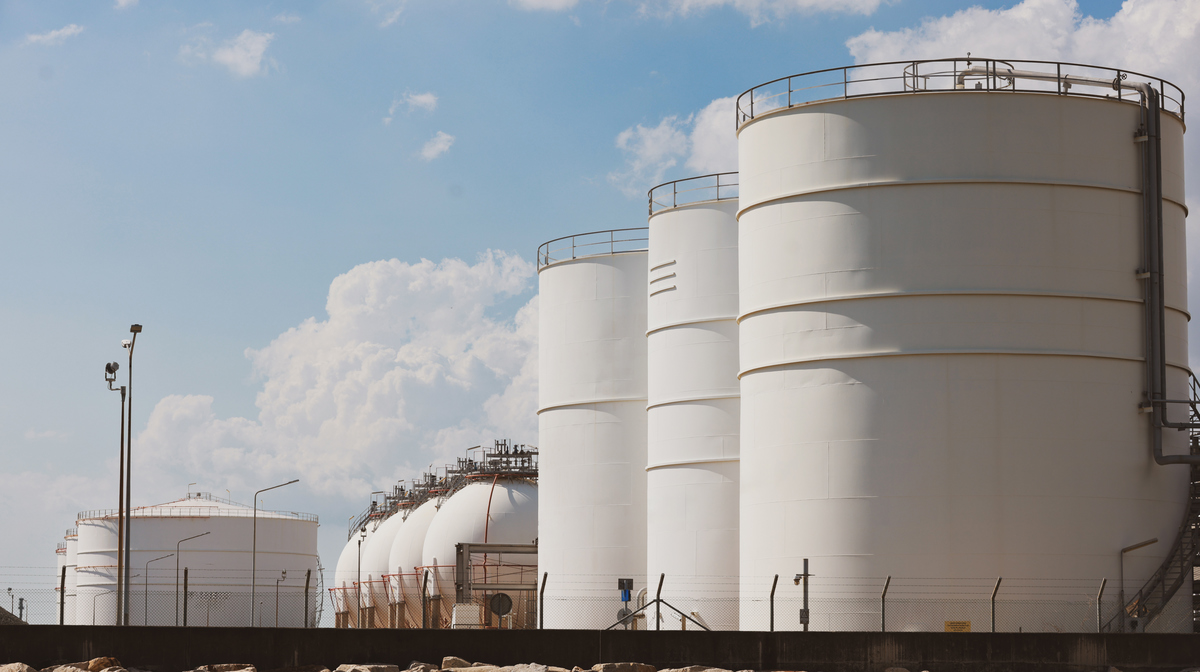Rotterdam sees higher oil throughput despite ban on Russian imports
Rotterdam’s total liquid bulk throughput was 6% higher in the first quarter than a year earlier.
 PHOTO: Oil refinery and storage tanks in the Port of Rotterdam, Netherlands. Getty Images
PHOTO: Oil refinery and storage tanks in the Port of Rotterdam, Netherlands. Getty Images
Crude oil throughput rose by 3% on the year, to 26.3 million mt in the first quarter.
“More crude oil was supplied from the United States, West Africa and the Middle East” in the quarter under review as Russian oil imports ceased following the EU's ban on imports of seaborne Russian crude oil from 5 December last year, and subsequent ban on imports of refined Russian oil products from 5 February this year.
This has meant that about 50 more - or “twice as many” - very large crude carriers (VLCCs) offloaded their cargo in the first quarter than a year earlier. Port calls from tankers surged by 30% on the year.
Transshipments of mineral oil products rose by 12% to 15.1 million mt in the first quarter. The port attributes this rise to an “increase in the throughput of diesel at independent terminals and at the dolphins,” which primarily replaced sanctioned Russian diesel.
LNG throughput also increased by 14% to 3 million mt in the quarter. High European gas prices and more spot cargo shipped are the primary reasons behind the rise in LNG throughput.
The port’s throughput of bulk cargo rose by a marginal 0.2% to 17.9 million mt in the same time frame. Throughput of iron ore, scrap metal and coal surged in the quarter.
The port authority highlights a decrease in throughput of containers, Ro-Ro and general cargo as the primary reason behind a decrease of 1.5% in total freight passing through the port compared to the same period last year.
“As expected, the year 2023 started with a slight decline in throughput. Especially in the container segment, we faced a decline in volumes due to high inflation and a weakening economy. Results in the other segments mainly show growth and confirm that dependence on Russian energy flows has been further reduced in line with the sanctions,” the Port of Rotterdam Authority’s chief executive Allard Castelein says.
Castelein expects “a limited decline in throughput volumes due to the uncertainties posed by the current geopolitical situation and high inflation” for rest of the year.
By Tuhin Roy
Please get in touch with comments or additional info to news@engine.online





